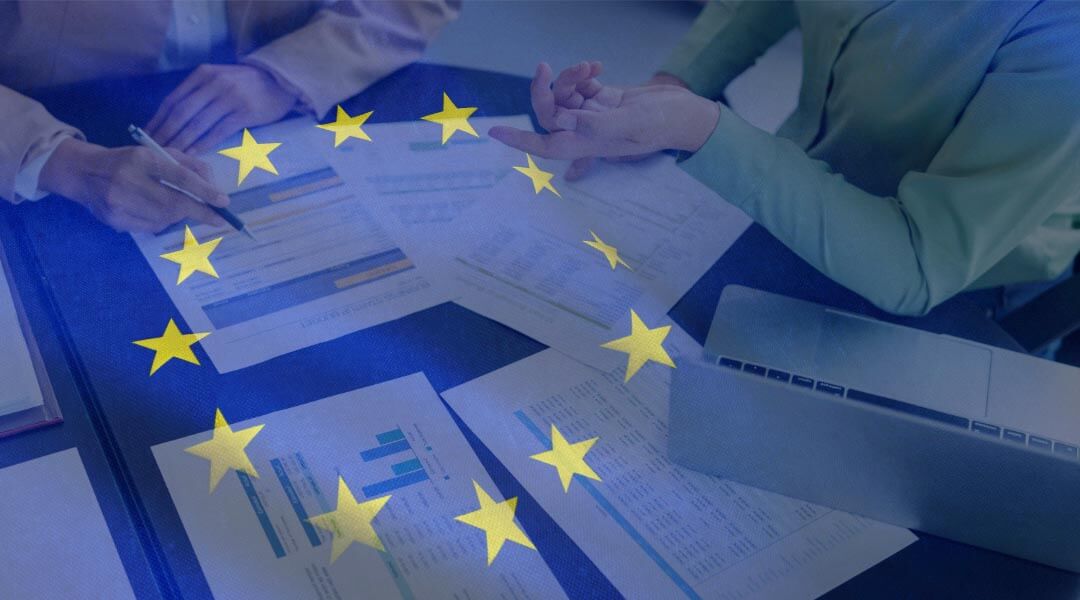In September, the European Commission revealed it had dispatched letters to 17 EU Member States, initiating infringement actions due to their inability to confirm the complete integration of the Corporate Sustainability Reporting Directive (CSRD) into their national legislation.
The CSRD has been an important evolution in ESG reporting requirements, and the EU Commission is stressing how crucial the framework is by announcing potential infringement.
But first, a quick update on what the CSRD is, before we discuss exactly what the EU Commission announced.
What is the CSRD?
The CSRD replaces the Non-Financial Reporting Directive (NFRD), which was the former EU framework for sustainability reporting. It has expanded the number of businesses under the scope of the directive to over 50,000 companies.
The framework greatly expands the scope and detail of ESG data that organisations need to disclose, mandating comprehensive information on ESG effects, risks, and benefits. Moreover, the CSRD is going to have a widespread impact globally, covering not only EU companies, but companies within supply chains and non-EU parent companies.
The CSRD became applicable at the start of 2024 for large companies with over 500 employees, with initial reports expected in 2025. The European Sustainability Reporting Standards (ESRS) outline the detailed disclosures for sustainability reporting that the CSRD requires.
The deadline for EU countries to incorporate the CSRD into their national legislation was July 6, 2024, but the Commission continues to urge 17 member countries to implement the directive.
What did the EU Commission announce?
On September 26, 2024, the European Commission approved a set of infringement decisions related to delayed implementation of specific EU directives. As part of this, 17 Member States have been called to transpose the CSRD into national law, marking the initial phase of the EU infringement process.
The countries that received the letters include Belgium, Czechia, Germany, Estonia, Greece, Spain, Cyprus, Latvia, Luxembourg, Malta, the Netherlands, Austria, Poland, Portugal, Romania, Slovenia and Finland.
In its announcement regarding the initiation of infringement procedures, the Commission stated:
“In the absence of transposition of these new rules it will not be possible to achieve the necessary level of harmonisation of sustainability reporting in the EU and investors will not be in a position to take into account the sustainability performance of companies when making investment decisions.”
This letter of formal notice is the first step under the EU infringement process, and the Commission may take further legal action.
After the letter, the Commission may deliver a reasoned opinion alongside an official request for legal compliance. Subsequently, it could escalate the issue to the Court of Justice, seeking to impose penalties.
Alongside directing Member States to complete their adoption of the CSRD, the Commission initiated infringement actions against 26 members for not complying with the requirements set forth in the Renewable Energy Directive.
The regulation requires that renewable energy constitutes 42.5% of the European Union’s total energy usage by 2030, while also directing Member States to work together towards reaching a suggested renewable energy goal of 45%. The Commission reports that, thus far, only Denmark has successfully communicated the complete implementation of the directive’s provisions by the July 2024 deadline.
The Member States now have two months, until 26 November 2024, to respond and complete the CSRD implementation into national law.
Why is this important?
The Commission’s announcement emphasises just how critical the CSRD is for ESG reporting, and also stresses that countries and their governments need to speed up their implementation of the directive.
It underscores the EU’s dedication to adhering to sustainability disclosures and ESG efforts, stressing the significance of transparent and unified sustainability reporting throughout Europe.
While the Commission’s measures don’t directly impact companies, they could help accelerate the implementation of the CSRD in these Member States. It’s important therefore that companies monitor these developments carefully.
Countries might “gold-plate” the CSRD in their domestic laws. This would mean they can extend the scope of companies required to report under the CSRD, or impose additional or more extensive ESG reporting requirements.
Keeping an eye on the coming transposition of the CSRD will be a crucial aspect of companies’ preparation for ESG reporting, both in the EU and beyond.
The ESG landscape continues to evolve, and with the EU Commission demonstrating their commitment to the quick implementation of the CSRD, it’s important now more than ever to be on top of your ESG reporting, and your ESG reporting process.
This is where Convene comes in.
We have developed our own ESG reporting tool: Convene ESG.
Convene ESG provides an end-to-end platform to collect data, track progress, compare with peers, align with frameworks and produce ESG reports.
With Convene ESG, you can collect your data for all the necessary metrics in the CSRD legislation, ensuring that you are compliant with regulations. With various global and regional frameworks also built in to Convene ESG, you will easily comply and report against any other standards without the need to repeat the reporting process.
Convene ESG is designed to make the reporting process as easy as possible, so you can be prepared for the changes to and challenges of ESG regulations.



